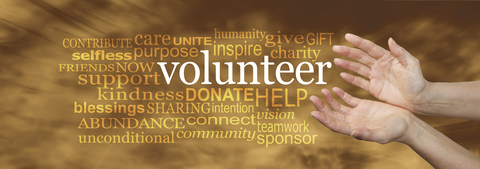Somehow in America, we went from don’t blame the poor, to don’t befriend or mentor them either. We didn’t mean to do that, but we have. We don’t blame the poor because they could be victims of their upbringing, bad luck, or health. Fair enough. But then the pendulum swung over, and we thought we shouldn’t judge them in any manner. That meant we couldn’t help them identify and tackle life’s challenges. Instead, we just give them financial aid and hope they figure things out for themselves. Bad idea.
Impersonal handouts

Take food as an example. The United States has hundreds of food banks and soup kitchens. At the federal level, we have SNAP which distributes billions in vouchers for food purchases. Giving away food is the goal, and success is usually measured by how much food is given away. Most of the time, those handing out food don’t know to who they are giving it. There is very little focus on teaching folks to be food independent. Why do we stop short of knowing who we are helping and trying to befriend and mentor them? It is the oldest saying regarding the poor – teach a man to fish, and you feed him for a lifetime, give him a fish, and feed him for a day. Why do we stop short of teaching a man to fish?
Don’t blame the poor – there aren’t enough jobs
We stop short of teaching and mentoring the poor because we feel there are just not enough jobs out there that pay a living wage, and until there are, the family merely needs financial help. That may or may not be the case, but it is not a justification for not looking deeper. We know that something is often lacking in the individual or family. It could be poor education or poor life skills, or something more invasive like alcoholism or drug addiction. We can’t just assume everyone is okay and can improve their lives without friendship and help. That’s morally wrong. Besides, only 7% of the poor say the reason they are not working is that they can’t find the right job. More.
Don’t blame the poor – it’s society’s fault
Some would argue that society is far more to blame for poverty than the people in poverty. That is the basis for we should not blame the poor. That is an interesting observation and may or may not be accurate, but it is not a justification for not “teaching a man to fish.” We are not trying to lay blame here. We are trying to figure out whether the person knows how to fish or not. We can teach a man to fish without laying blame. It is an excellent reminder to strive to help with love in our hearts and the best interest of the poor in mind. Most charities have such standards.
Afraid to get personal
The real reason we don’t teach people life skills and help them solve problems is we are afraid to get personal. The prevailing logic is that it is not our business to judge the poor – it is simply not appropriate. That feels like blaming the poor. But we can’t have it both ways – we can’t believe in teaching and yet be afraid to discern the level of education of the pupil.
When we teach a man to fish, we say, “You don’t know how to fish; I know how to fish; let me teach you how to fish.” This doesn’t happen unless we discern that the person doesn’t know-how and needs to know-how. We do so with a desire to help, and we don’t seek to blame the individual for their non-fishing knowledge. After all, we didn’t know how to fish until someone taught us how. Isn’t that true with all life skills?
The challenging problems of the real world

Of course, things get complicated in the real world, where life skills regarding work ethic, employment, savings, budgeting, cooking, raising children, etc., are necessary to live independently. That makes discernment a challenge and judging much more personal. So we don’t do it – it is much easier just to give away food and leave it at that. We have morally justified our inaction by thinking it is not proper or politically correct to get personal and find out what, if anything, is missing, going wrong, or can be improved. We believe it is not proper to act superior. Such thinking has relegated discernment to a lost art.
In the end, such thinking has caused the vast experience of those successful in the United States to ignore those who could benefit from their knowledge and help. Don’t blame the poor has killed off teaching life skills. Don’t blame the poor means “here is a fish, come back and get another fish tomorrow.”
This blog supports the Ultimate Guide on How to Help the Poor – Change the Approach